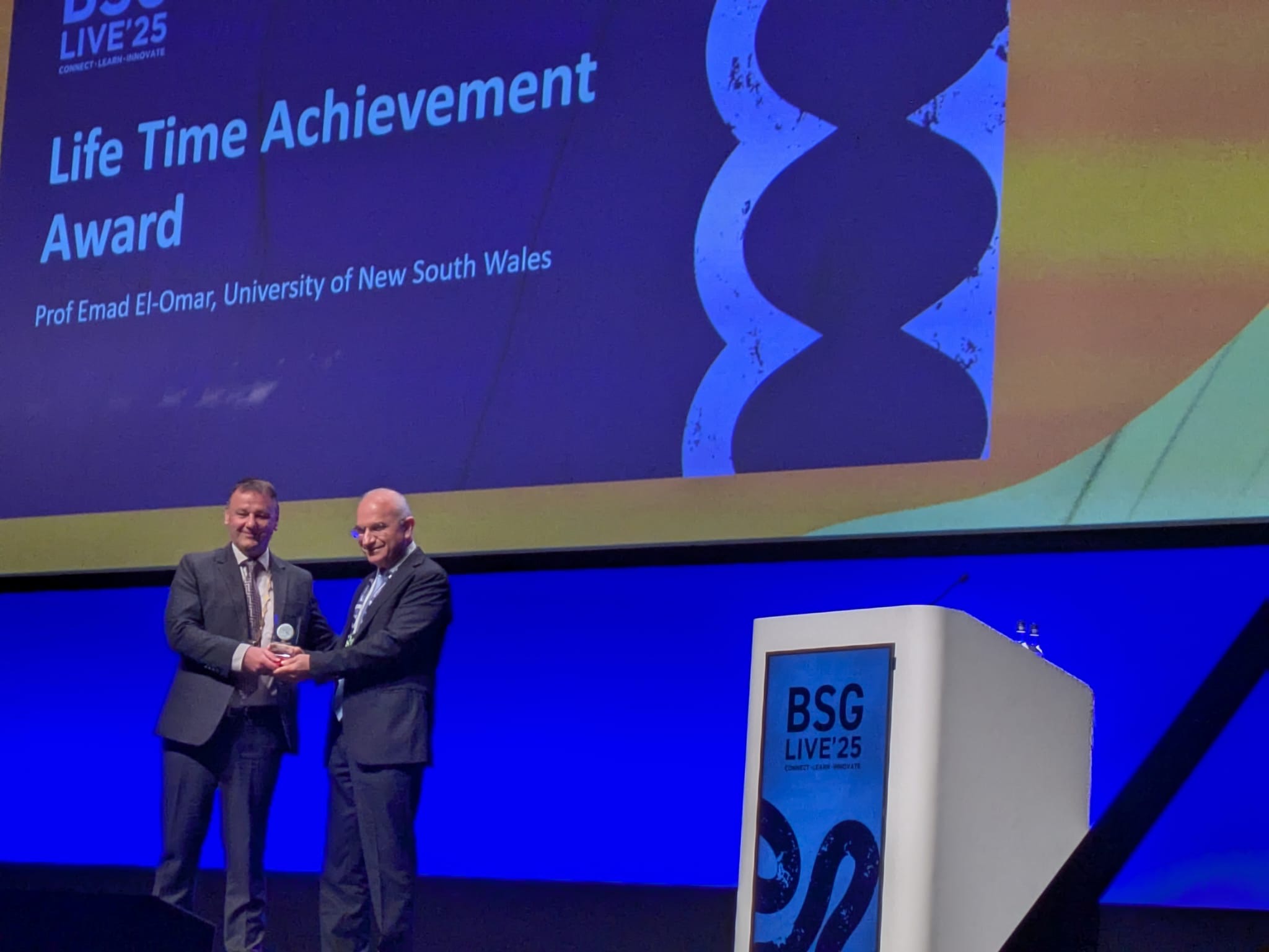.jpg?width=5630&height=3753&ext=.jpg)
Sir Francis Avery Jones Award
Applications for this award open on Friday 28th November 2025 and close on Friday 13th February 2026.
The annual Sir Francis Avery Jones (FAJ) BSG Research Award encourages research by gastroenterologists working in the UK and the Republic of Ireland. The award consists of:
- An opportunity to deliver a lecture at BSG Annual Meeting
- An engraved medal and certificate
- Full registration for the whole meeting
Entrants need not be a member of the Society but must fulfil certain age criteria. Previous applicants are welcome to apply.
Guidance for candidates applying
Thank you for applying for the Sir Francis Avery Jones Prize, which recognises the work of younger researchers, and is the highest honour that the Society bestows in this respect.
The BSG is an open, equitable, and inclusive Society, and welcomes applications irrespective of gender, ethnicity, background, or training.
If you are uncertain as to whether you should apply, or would like some help in completing the application, please contact our office and we will provide advice independent from the judging panel. Please note we can only provide advice; it remains your responsibility to provide the evidence in a form which is easy for the panel to assess.
Please note the criteria laid out in the Sir Francis Avery Jones notice which represents the minimum information required.
You must be under 40 years of age on the day of the lecture or have held a consultant post for less than 5 years. If you have been in part time or intermittent employment, we will adjust the 5-year figure to a whole time equivalent. This can include time out of practice for maternity, paternity, or carer’s leave, up to a maximum of 10 years. If you are in any doubt, tell us about the circumstances and we will advise accordingly.
We ask all reviewers for any potential conflicts of interest and take precautions to avoid any intentional or unintentional bias when judging applicants.
Please describe your academic training including any higher degrees, PhD, or post-doctoral work.
We need details of your publication history. Please indicate publications where you have played a significant role, for example, as first author, last author, or corresponding author in peer review journals.
It is helpful to list all your publications by type i.e. original papers, reviews, abstracts, posters, web- based publications etc.
Please list other markers of esteem, such as prizes, invited lectures, or conference activity.
We look for evidence of independent research activity including grant awards, managing or directing a laboratory and its staff, the number of staff under your supervision and details of supervision of trainees, fellows, higher degrees, or post-doctoral workers. A list of total grant awards is useful, but it is helpful to show where you were the primary applicant. All criteria is taken into account and no single measure decides the outcome of your application.
We understand that applications for any award requires time in a busy academic schedule. We very much appreciate your decision to apply and promise that all applications will be reviewed fairly.
How to apply
Below are the fields you’ll need to complete.
- Please describe your academic training including any higher degrees, PhD, or post doctoral work. 400 words
- Total number of publications in peer review journals (numbers in each category i.e. original papers, reviews, abstracts, posters, web- based publications etc.): 400 words
- Please indicate your top 10 publications. Outline if you were first author, last author, or corresponding author in peer review journals: 400 words
- Please describe the impact of each of the top 10 publications: 400 words
- Please list other markers of esteem, such as prizes, invited lectures, or conference activity: 400 words
- Please describe evidence of independent research activity including managing or directing a laboratory and its staff, the number of staff under your supervision and details of supervision of trainees, fellows, higher degrees, or post-doctoral workers: 400 words
- Please list evidence of grant awards as lead or co-lead investigator together with funding body, dates and total awards: 400 words
- The title and an outline of the proposed content of the lecture: 300 words
View the full BSG Policy for this award.
Judging information
The BSG will convene a panel of 10 reviewers including the President Elect, previous winner, and research committee reps. They will each score each application on each of the following categories, giving a total score of 20. These scores are then ranked.
- 0-7 Publication quantity & quality
- 0-7 Other markers of esteem (e.g. prizes, awards, conference activity etc.)
- 0-5 Evidence of independent research activity (last authorship, grant income, lab staff)
- 0-3 Academic training record including PhD and post-doctoral
Where possible, the reviewers are blinded. However, please note that applicants for these awards are often unique and well established. Therefore, it may be possible to determine who an applicant is based on the information they provide.
Application Form

Barbers’ Company Award for Trainees in Gastroenterology
The Barbers’ Company Award for Trainees in Gastroenterology was introduced in 2021, and has been established by the Barber’s Company in memory of Sir Francis Avery Jones, past Master of the Barbers’ Company and past President of the BSG.

BSG Lifetime Achievement Award presented to Professor Emad El-Omar
The British Society of Gastroenterology has awarded a prestigious Lifetime Achievement Award to Professor Emad El-Omar, recognising his extraordinary contributions to the field of gastroenterology, his exemplary leadership, and his unwavering commitment to mentoring and education.
.jpg?lang=en-US&ext=.jpg)
Barbers' Company Award for Trainees in Gastroenterology 2023 - Dr Theresa Hydes - Successful Candidate Report
The Barbers’ Company Award for Trainees in Gastroenterology was introduced in 2021, and has been established by the Barber’s Company in memory of Sir Francis Avery Jones, past Master of the Barbers’ Company and past President of the BSG.